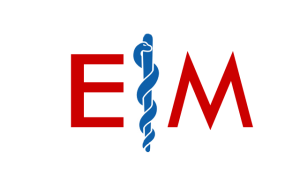Exploring Based Medicine Instructor Guide
Exploring Medicine
Evidence Based Medicine Instructor Guide
Welcome to Exploring Medicine and thank you for using our product. We are confident that your students will very much enjoy this experiential education of applying basic science to clinical medicine. Our goal is also to minimize the burden on the professor to provide this experience to the students. You can either decide to present this information yourself, or this is a perfect opportunity to invite providers from the community to come in to classroom as guest speakers. In whatever manner you decide to deliver this material, we are here to help.
The Exploring Medicine Cardiovascular Instructor Guide is actually more of a menu than a guide. Please take some time to review the various EBM supplemental lessons and select those that you would like to incorporate into your class time. By completing the online portion of this module, students will be prepared to tackle all of these lessons. Each slide show has an accompanying document with descriptions for each of the individual slides. There are several opportunities provided through which you can weave clinical medicine, and other real life applications, into your current basic science curriculum. If you have questions regarding this material, you are free to contact us at info@exploringmedicine.net. We would be happy to help you. We can even find additional supportive educational material if you have such suggestions.
Must “Mark Complete” Exploring Medicine’s Terms of Use before you are authorized to view the modules guides.

